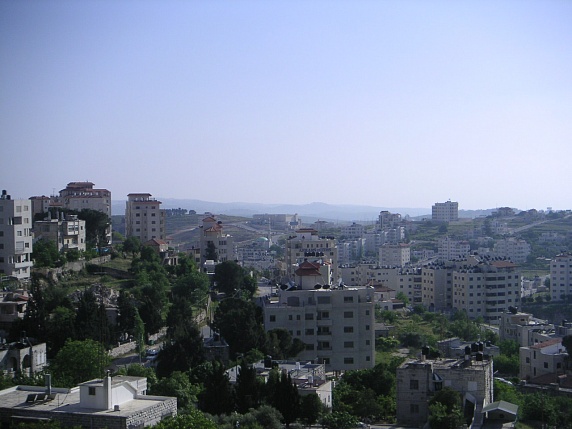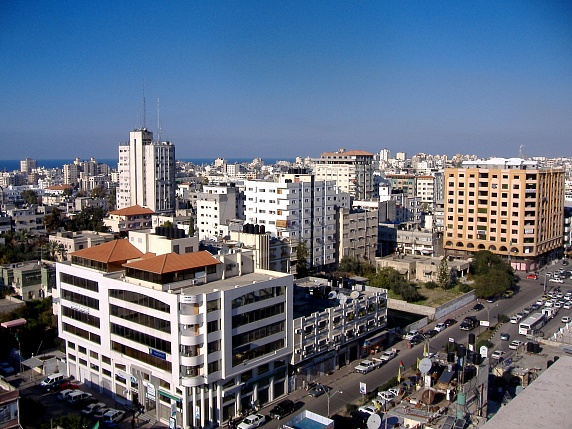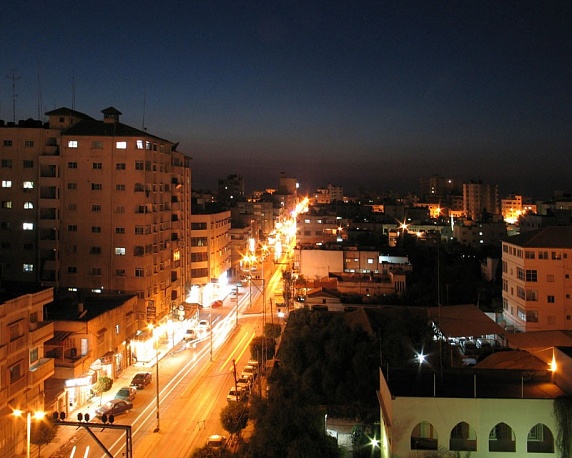 State of Palestine
State of Palestine
Transcript of Response to Media Questions by Russian Minister of Foreign Affairs Sergey Lavrov After Trip to Sharm El Sheikh to Attend the International Conference in Support of the Palestinian Economy for the Reconstruction of Gaza, March 2, 2009
Question: What are your impressions of the meeting of the Quartet of international mediators?
Foreign Minister Lavrov: My impressions are very good. The chief thing is that everybody understands the necessity to prevent protraction of the pause brought on by the crisis around Gaza. Like ourselves, everyone unambiguously supports the efforts of Egypt to ensure a durable truce between the Israelis and the Gaza Strip, and in parallel, to restore Palestinian unity based on a pan-Arab platform, on the platform of the Palestine Liberation Organization. These are, so to speak, the tasks for the coming weeks.
Everybody welcomed the fact that Egypt had already managed to organize a joint meeting of Palestinian groups, during which a scheme of action had been worked out in five directions along with forming working groups to act in these directions, bearing in mind to arrive before Palestinian presidential and parliamentary elections at the creation of a transitional government. And, of course, taking into account the advent in Washington of the new administration, it is very important to hear what plans the US has in the Middle East sector. Hilary Clinton unambiguously reiterated the commitment of the Barack Obama administration to restart and intensify the peace process, stressing that the US special envoy, George Mitchell, who was also present at the Quartet meeting, would be concerned exclusively with this mission together with the other special envoys, including with our, Russian special presidential envoy, Deputy Foreign Minister Alexander Saltanov.
The chief conclusion is that there will be no rollback in the peace process. Everyone understands that a new government is being formed in Israel and that there will probably appear some nuances in its approaches to the further negotiation process. But the Quartet spoke out unambiguously and unanimously for preventing a situation where it would require starting with a clean slate and for ensuring that talks between the Palestinians and the Israelis are resumed taking into account all the accords that have been reached to date. The Quartet has also expressly reaffirmed that there can only be a comprehensive settlement. This means that apart from the Palestinian track, movement is also needed along the Syrian and Lebanese tracks. I think that this is already a positive result. We adopted no documents, but what I have now said reflects the Quartet's common position.
Question: And did Clinton comment on the possibility of achieving a settlement on the Syrian track?
Foreign Minister Lavrov: The Syrian track does not depend on the Americans, but on Syria and Israel. Nobody commented on anything in particular, simply everyone emphasized that it must be a comprehensive settlement, including Syria and Lebanon.
Question: In the matter of rendering aid to the Palestinians the main problem now consists in that the money allocated by the international community should reach the targeted recipient?
Foreign Minister Lavrov: There is no special problem in this matter. There is an understanding that all those wishing to provide aid can use the European Union's channel, which has long since been in operation – the so called PEGAS program. Use can also be made of the UN channel – UNRWA – the Relief and Works Agency for Palestine Refugees in the Near East. And, of course, everybody presumes that the efforts to restore Palestinian unity will be crowned with success. There should be no problems then at all.
Question: But will the PNA receive the 2.8 billion dollars it asked for?
Foreign Minister Lavrov: You know how usually the donor pledges are made and how far from always the sums pledged materialize into concrete aid. So I won't indulge in guessing. I hope that the maximal portion of what was pledged will reach Gaza, and most importantly, the work on the Strip's reconstruction must go uninterruptedly – so as not to have again after some time to grapple with the consequences of any further hostilities.
Question: When will the PNA receive Russian aid?
Foreign Minister Lavrov: Very, very soon.
Question: One has the feeling that the world community has today begun to heed the opinion Russia had long since voiced with regard to talks with Hamas?
Foreign Minister Lavrov: I think that life has once again shown the absolute counterproductiveness of the isolation of some one of the parties in conflict. Hamas is a political force. We all want that Hamas should be an exclusively political force and that it should renounce the methods of creating a Palestinian state which involve the use of violence and terrorist manifestations, including rocket fire on Israel, and civilian deaths. Simultaneously, of course, we want that Israel should also ensure its security in strict accordance with international law.
Returning to your question, I would like to stress that Hamas is a phenomenon Palestinian, not imported. By the way, Hezbollah likewise wasn't imported into Lebanon, it's a Lebanese phenomenon. Hamas enjoys considerable popularity among a large portion of Palestinians. Therefore, any new government must, of course, be formed on the basis of election results. And at this stage it is important to create a cabinet which will mostly be getting ready for elections. I don't think it should necessarily be created on party grounds. There was the Saudi King's initiative a year and a half ago after all, when, after a meeting in Mecca, just this kind of technical, technocratic government was formed. It was not made up of leaders from a particular party, but of respected people whom different Palestinian groups had recommended. It seems to me that this is the most optimal way.
Undoubtedly, elections in Palestine should be held on the basis of the recognition by all election campaign participants of the PLO platform and the Arab Peace Initiative. I think that this is an absolute minimum. But all those who support this process, on whom the international aspect of a settlement depends – they are primarily the Quartet members – the US, EU, Russia – must also in this case say they recognize the election results and will not create the kind of difficulties that arose because of the non-recognition by western countries of the democratic government created at Saudi Arabia's initiative. Therefore it is necessary to look at everything in a package here, and all actions must be well figured out at each stage. There is not so much time left, because the elections will take place no later than January 2010.
Question: And in what way can the Quartet guarantee the legitimacy of the elections? Is it necessary to send international observers to Palestine?
Foreign Minister Lavrov: Observers can be sent there from all over the world. Everybody will go with pleasure – particularly since there were no problems with the very process of the organization and holding of elections there. The latest elections, when Hamas got a majority in the parliament, caused no questions in anybody's mind from the viewpoint of cleanliness and conformance to international standards. They were absolutely democratic.
Question: Georgia has announced that the issuance of visas in Moscow and Tbilisi for citizens of the two countries will be resumed in the coming days. Could you confirm this information?
Foreign Minister Lavrov: I haven't heard these statements. Simply I know that our agreement with the Swiss and that of the Swiss with the Georgians must soon enter into force to the effect that Switzerland will represent the interests of Georgia in Moscow and, accordingly, of Russia in Tbilisi.
Question: In 2006 the UN Security Council adopted two resolutions at once which obliged North Korea to end the development of ballistic missiles. A week ago the DPRK announced that it was going to launch a rocket with a satellite. This evokes concern in everybody. Russia has been following the situation. Did North Korea inform us of the upcoming launch, its date, and flight trajectory? How will we react if the launch occurs? Will this be a violation of the UNSC resolution?
Foreign Minister Lavrov: North Korea informed everyone and announced that it was preparing the launch of an artificial Earth satellite. If this is an artificial Earth satellite, then there is no requirement to announce any flight trajectories, as distinct from shooting practice and training launches of ballistic missiles.
We have indeed been following the situation and expect that everyone will show restraint and commitment to the obligations arising from the UNSC resolution. No one prohibits launching satellites, but a rocket that carries a satellite is another matter. We must understand what kind of missile that is. I think we must all resume the six-party talks as soon as possible so that all the participants of this process who had promised the North Koreans compensation aid in response to decommissioning of the nuclear reactor in Yongbyon fulfill their obligations and do this based on the accords under the six-party process without attempts to hedge the fulfillment of these obligations with a solution of problems even if important but nevertheless pertaining to bilateral relations.
Question: Did you manage to communicate during the Conference with Hilary Clinton?
Foreign Minister Lavrov: Yes, I did. At the Quartet meeting we sat together.
Question: To what extent is the participation of Russia and the Quartet possible today for the acceptance by Israel of the Arab Peace Initiative?
Foreign Minister Lavrov: I would not say that Israel is rejecting it. This is the basis on which alone it is possible to negotiate. It absolutely fits into the UNSC resolutions adopted over the past decades. The Arab Peace Initiative is enshrined by the authority of the UN Security Council and its resolutions. There can be no solution other than peace in exchange for land. Or land in exchange for peace, if you will. The Arab Peace Initiative adds a very important element to the land for peace formula. This element essentially means the recognition of Israel by all Arabs, and the establishment of appropriate relations with it. The support of this initiative by all OIC members attaches an equally great additional significance to it. Underestimating that potential would be wrong. Therefore the Quartet will vigorously seek to ensure the talks with the Palestinians, Syrians and Lebanese proceed exactly in this vein. We are convinced that this must be a pivotal concept at the Moscow Conference.
Question: When will it take place?
Foreign Minister Lavrov: As soon as Israel's prime minister is sworn in. It is necessary to have on the Israeli side a participant of the appropriate level.
Question: Do you expect difficult talks in Geneva?
Foreign Minister Lavrov: I don't think it will be talks, especially difficult talks. This will be a meeting designed to enable us to consider the entire agenda, all international spheres of our cooperation, as well as preparations for a meeting between the Russian and US presidents. Talks are conducted on drafts of documents. So there will be no talks as such.
Question: Are you going to get any facts straight?
Foreign Minister Lavrov: I am. Any conversation is getting facts straight. Of course, we'll do that.
Question: Which themes are priorities for us? For the Americans it's the disarmament theme. Will we agree to such an agenda?
Foreign Minister Lavrov: This is important. For two and a half years we sought from the George Bush administration the beginning of talks on the regime of the limitation of strategic offensive arms, on which the treaty expires in December this year. We are now waiting when a disarmament team of the Barack Obama administration is formed. The team is not yet staffed, but contacts are nevertheless being held at the expert level. The Americans have an appropriate understanding of the matter. And our understanding consists in that this matter is acquiring special urgency owing to the expiration of the START 1 Treaty. Among priority themes I will single out the problem of nonproliferation as well as the Korean Peninsula nuclear problem.
Question: Does Russia agree with the idea the American partners have voiced that it is necessary just to extend the START 1 Treaty since a new document can't be prepared over the remaining period?
Foreign Minister Lavrov: This is not a way out of the situation. The treaty has practically outlived its usefulness. There were developed very good mechanisms in it, which we want to retain; in particular, to retain the limitations not only on warheads, and I mean warehoused warheads as well, but also on all kinds of carriers. That's what the Bush administration kept avoiding. We also want to have such conceptual points enshrined in new agreements. They, however, are being discussed in other conditions, when both sides must fully take into account the ratio of this or that part of the strategic triad. It is necessary not to increase the already permitted parameters but to restrict the bounds and limits which are agreed in the treaty currently in force. They have long since been fulfilled and overfulfilled by us and by the Americans alike. There is now actually left considerably less of what is permitted by the current treaty. To keep it further means sending the world a very wrong signal meaning the possibility of a still greater buildup of nuclear arms. That is incorrect. I would not like a point of view to prevail among the Americans in favor of the preparation of a roundabout option. There can be no roundabout option of which you speak. It is necessary to search for new agreements.
Question: Will the visit of Barack Obama to Moscow take place in April?
Foreign Minister Lavrov: Presidents Medvedev and Obama will meet in April in London.
Question: How ready is the US administration to hold direct talks with Iran today?
Foreign Minister Lavrov: Of course, apart from WMD nonproliferation, strategic arms and Euro-Atlantic security issues, we will also discuss with Clinton the problems you have mentioned. They are issues of the Middle East region, and the Iranian nuclear program. We would like very much that the American side should join the position of the Six not only on paper, but also the talks with Iran as proposed by the Six. We will only welcome a normalization of US bilateral relations with Iran. This will undoubtedly constitute a very important element of stabilizing the situation in the region and will enable more effectively reaching agreement on the nuclear development that is being conducted in Iran under IAEA control. At issue is also involving Iran on an equal, worthy basis in efforts to resolve the Iraqi and Afghan conflicts, as well as in all aspects of the Middle East settlement.
March 3, 2009










